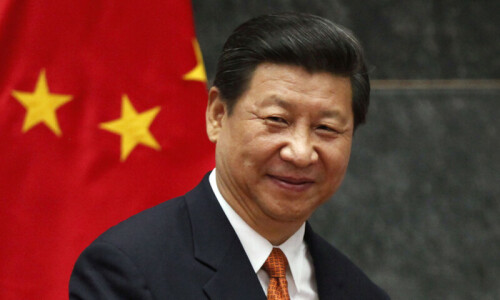KARACHI: Traders and industries are of the view that a further reduction in the interest rate will benefit both the manufacturing sector and banks, which faced a default of Rs70 billion in 2023.
They anticipate that the interest rate will drop to around 15 per cent in the next fiscal year (FY25). The State Bank reduced the policy interest rate by 1.5pc to 20.50pc on June 10, a move that is expected to have a positive impact on the economy.
“I believe the government will adopt a pro-growth policy aimed at creating jobs, boosting exports, and reducing its own burden by slashing the interest rate,” said Amir Aziz, an exporter of textile products.
However, bankers are sceptical about a significant decline in the interest rate during FY25. They believe that the prevailing issue of inflation will play a crucial role in determining the interest rate in the next fiscal year.
“The government plans to generate much higher revenue than the economy’s capacity; more taxes will fuel inflation and this will ultimately determine the fate of the interest rate,” said a senior banker.
However, most analysts expect a significant drop in the interest rate in the new fiscal year, driven by the unexpected decline in inflation to 11.8pc in May, which was lower than the expectations of the State Bank and markets.
The high interest rate has burdened the government with costly debts, requiring it to allocate approximately Rs7 trillion for debt servicing, an amount nearly equivalent to the total tax revenue in FY24.
At the same time, bankers have also expressed concerns that the high interest rate led to a significant increase in defaults in the calendar year 2023, with banks facing a default of Rs70 billion, making it challenging for them to lend at rates above the base rate of 22pc (now 20.50pc).
Lending in FY24 has plummeted to its lowest level, indicating sluggish economic activity in the country, which may result in a meagre growth rate of 2.3pc in the current fiscal year.
In contrast, the economy contracted in FY23, attributed by industry experts and researchers to the stringent control over imports. Several industries reliant on imported raw materials were forced to either shut down or operate at minimal capacity. Although imports were eased in the second half of FY24, they remain limited.
However, nearly all banks reported a doubling of profits in the calendar year 2023, mainly due to high-cost lending to the government. Bankers believe that the government will require even more borrowing in the current year, as the revenue projections outlined in the budget appear uncertain.
“There is no check on government spending which is the root cause of excessive borrowing and record-high domestic debt servicing,” said an analyst on condition of anonymity. He emphasised the need for auditing government expenditures, citing the lack of strict checks on fund allocation.
Published in Dawn, June 23rd, 2024














































